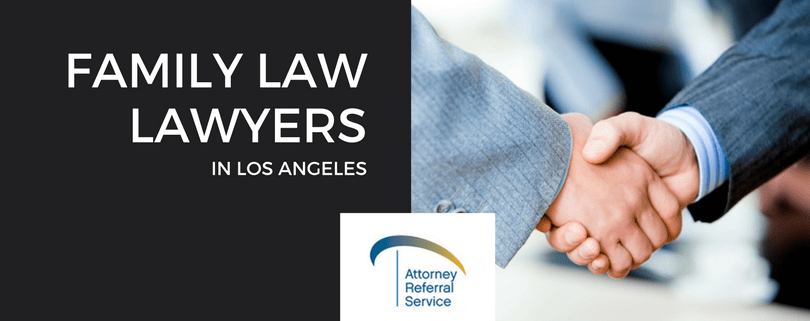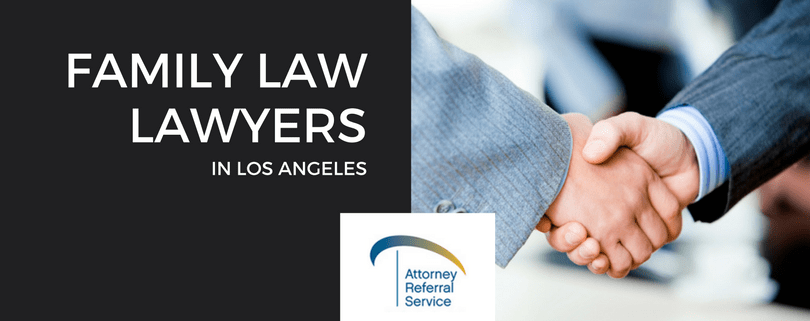Where to Find A Family Law Lawyers In Los Angeles

Family law in Los Angeles is concerned with issues involving family relationships, including divorce or legal separation, child custody and child support, adoption, paternity, emancipation, alimony, and domestic violence. Here is some information that will introduce you to these areas of Family Law and give you a better idea of what’s involved in the court process for dealing with them.
Divorce
Most Los Angeles family lawyers provide representation for clients in divorce proceedings or similar matters relating to divorce. Each partner hires an attorney to try to come up with a settlement plan that would avoid a trial.
Divorce attorneys are experienced at dividing marital property, calculating child and spousal support, and devising a plan for child custody and visitation.
Different states have different laws concerning marriage, divorce and other family matters. Some states permit same-sex couples to marry, and some do not, but this is an area of rapidly changing laws.
Custody
California family courts consider many factors before granting parents sole custody or joint custody of children. These factors include whatever is in the best interests of the child, which parent is more likely to want visits with the other parent, what the child wishes, and any history of domestic violence or drug use by either parent.
Larger divorce cases in Los Angeles include court orders and settlement agreements involving both custody and support, but they can be revisited and revised if relevant conditions change. An example would be a change of financial situation for the non-custodial parent.
Paternity
In many Los Angeles paternity cases, the legal action is initiated by the mother in an effort to secure child support payments from an absent father. In other cases, though, the biological father will file for paternity to establish a relationship with his child. Paternity is usually determined through DNA tests.
Adoption
The adoption and foster care processes are complex. It depends on many factors including variances in state laws, the type of state law, and where the child is from. Depending on the situation, foster parents may adopt their foster children without the need for legal representation. Parents can get advice on this matter from a good attorney referral service.
One resource is the Los Angeles County Department of Children and Family Services, an organization that provides information and assistance to families regarding laws and processes for independent adoptions – those adoptions where the birth parents select the family and place the child with that family. Attorneys are needed to ensure compliance with Interstate Compact regulations that involve things like home studies, interviews with birthparents and consent to adopt.
Domestic violence
Domestic violence as defined by the Los Angeles Superior Court includes being beaten, cut, kicked, threatened, stalked or raped by a spouse, former spouse or partner, father or mother of your children, someone you have dated or lived with, or a family member.
The court can issue restraining orders and protective orders that can prohibit an assailant from harming you or your children. An Emergency Protective Order (EPO) can be issued immediately by a police officer. A Temporary Restraining Order (TRO) can be issued on your request. A Criminal Protective Order may be issued by a judge if criminal charges have been brought against the defendant, in order to protect witnesses and/or victims at criminal proceedings.
Emancipation
Emancipation is the legal process for children to become adults before age 18. It allows children to do certain things without parental approval including getting medical care, living wherever they want, applying for a work permit, or signing up for a school or college.
In becoming emancipated, these adults give up the right to be supported by their parents. They still have to go to school, and they still need to have parent’s permission to get married.
There are three ways to get emancipated: get married, join the armed forces, or get a declaration of emancipation from a judge.
Collaborative law
Collaborative law in Los Angeles can mitigate litigation by providing the parties with individual representation and advocacy as well as the support of a neutral mental health professional and, if appropriate, a neutral financial specialist. These professionals can help the parties reach a resolution efficiently and economically.
Collaborative law allows parties to arrive at the desired settlement while avoiding the uncertain outcome of court decisions. This process enables parties to work with a support team of professionals to settle divorce or family dispute issues without the threat and cost of litigation. It centers on a consensual approach rather than an adversarial one. It allows parties to negotiate directly while still maintaining representation.
The collaborative law process is used in many cases for a broad range of family issues including disputes between parents, divorce, and the negotiation of prenuptial and postnuptial agreements.
Superior Court of California County of Los Angeles
The Superior Court of California, County of Los Angeles, offers many services and handles all local cases related to family law matters. A family law attorney can explain how the court works to serve the citizens of Los Angeles. Here are some helpful references for understanding what the court provides.
Online services
Among the online services offered by the Superior Court is a program designed for parents who intend to appear at an Order to Show Cause or Trial regarding custody and/or visitation of their children. The program is called “Our Children First” and is a mediation/ parent education program required by law for parents prior to formal proceedings.
Parties involved in cases under the Domestic Violence Prevention Act may also attend this program but are not required to do so.
Other online services include requesting an interpreter for a Family Law case, finding the appropriate courthouse for filing a claim, or getting various information by case number.
Family Law resources
The Superior Court provides resources, from advice to processes to forms, in many areas of Family Law. The Court offers a Family Law Facilitator who assists parties with issues on child support, spousal support and health insurance issues.
The Court also provides referrals to social services and counselors for those who need them. It provides information on Family Law such as an overview of divorce proceedings. What the Court offers is not considered legal advice but can be helpful to those seeking clarifications.
For legal advice, a certified and qualified attorney referral service can find the Family Law attorney you need for your particular situation.
Court outreach programs
Community outreach is important for the Los Angeles Supreme Court to administer justice and carry out its mission, and it involves promoting dialogue with young people on the law, civics and tolerance, and encouragement for young people to become community leaders and pursue careers in the legal field.
In addition, the Court oversees hundreds of service programs throughout Los Angeles County to help citizens understand the legal process. Perhaps some of these programs can help you learn more about the kind of legal assistance that would be most valuable to you.
Are you in search for a certified attorney to represent you?
Let us help you find one today!




A family law attorney is one who not only helps you legally to sort out the issue but also guide to the right path. Since family law involves the more complex problem, special care should be taken in choosing the right family attorney.
We couldn’t agree more!